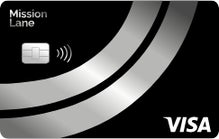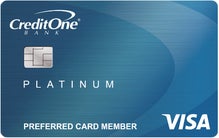The best unsecured cards for bad credit




A bad credit score, or any score below 579 on the FICO scale, can put a wrinkle in nearly any financial plan, including if you want to get a credit card. Most credit card issuers require good or excellent credit (670 to 850) to qualify for their best offers — especially if you’re looking for an unsecured card. If you have at least fair credit, or a FICO score between 580 to 669, you’ll likely have more unsecured credit card offers available to you. If you have bad credit, however, your options might be limited.
Still, a handful of unsecured credit cards for bad credit are available. Keep in mind that they tend to have annual fees, fewer perks and lower credit limits compared to cards for fair or better credit. Below, we list some of the better picks available.
Top unsecured cards for bad credit
Best for potentially no annual fee
Mission Lane Silver Line Visa® Credit Card
Intro offer
N/A
Rewards Rate
1.5%
Annual fee
$0
Regular APR
19.99% – 33.99% (Variable)
Reward Details
Bankrate’s view
Best for cash back
Credit One Bank® Platinum Visa® for Rebuilding Credit
Intro offer
N/A
Rewards Rate
1%
Annual fee
$75 for the first year. After that, $99 annually ($8.25 per month)
Regular APR
29.74%* Variable
Reward Details
Bankrate’s view
Remove a card to add another to compare
Remove a card to add another to compare
Comparing the best unsecured cards for bad credit
| Card name | Best for | Annual fee | Recommended credit score |
|---|---|---|---|
| Prosper® Card | High potential credit limit | $59 (waived for the first year if you sign up for autopay before your first statement) | 580–740 |
| Mission Lane Silver Line Visa® Credit Card* | Potentially no annual fee | $0 depending on creditworthiness | 300-670 |
| Credit One Bank® Platinum Visa® for Rebuilding Credit* | Cash back | $75 for the first year. After that, $99 annually ($8.25 per month) | 300-670 |
When a secured credit card might make more sense
If you have bad credit and can’t get approved for an unsecured credit card, a secured credit card might be your best option. Secured credit cards require a security deposit upfront, which serves as your credit limit. Putting down a cash deposit may not seem ideal, but secured credit cards may give you the chance to build credit when other cards won’t.
Plus, the best secured credit cards can offer rewards, no annual fees, and paths to upgrade to an unsecured credit card once your score has improved. And remember that your security deposit isn’t lost — when you close or upgrade a secured credit card account in good standing, you’ll get your security deposit back.
Here’s when to consider a secured card for bad credit rather than an unsecured one:
- You have the funds to put down a sizable security deposit to secure a higher credit limit.
- The annual fees on the unsecured cards you applied for are greater than or similar to the cost of a security deposit.
- The unsecured cards’ rates are near 35 percent and have confusing terms and conditions.
Although secured credit cards require cash deposits, they typically don’t have annual fees. So, a secured credit card for bad credit may still be cheaper than an unsecured one.
How to choose an unsecured credit card for bad credit
Though unsecured credit cards for bad credit have fewer features and options than standard credit cards, you’ll still want to choose carefully. Here’s what to consider when looking for the right card:
1. Look for credit-building features
Credit cards should make it easy for you to track and improve your credit score. First, only consider cards that report to all three credit bureaus. You’ll see your credit card activity reflected in your credit score, but it’s only updated every month if the credit card issuer reported your account to the credit bureaus.
Next, the best cards for bad credit give you free FICO score snapshots so you can track your progress and stay updated in case your score takes a dip. You’ll also be able to see how factors like on-time payments, credit inquiries and your credit utilization ratio affect your score.
2. Understand the rates and fees
You’ll be hard-pressed to find a credit card for bad credit that doesn’t charge interest or fees, but you should minimize your ongoing costs by finding cards with the most favorable rates and fees possible. Look for unsecured cards with APRs less than 30 percent, ideally, but no more than 35 percent. If you can’t qualify for an unsecured card with an interest rate lower than that, consider a secured credit card.
Then check any ongoing fees. Almost all credit cards have cash advance and late fees and most unsecured cards for bad credit charge annual fees. However, if you can find a card for bad credit that doesn’t charge an annual fee, consider putting it at the top of your list.
3. Check your approval odds
Some cards have a preapproval tool to let you check your approval odds with a soft credit pull before you apply. This lets you get a better idea of what the issuer will offer you before your credit score takes a small hit from a hard credit pull during your application. Plus, you can see the card’s potential rates, fees and credit limit with a preapproval tool.
4. Compare potential credit limits
The higher your credit limit, the more breathing room you have to make purchases and keep your credit utilization ratio as low as possible. While we don’t recommend carrying a balance, having a $100 balance on a card with a $200 credit limit results in a 50 percent credit utilization ratio, but only 10 percent on a card with a $1,000 credit limit.
And if the card charges an annual or monthly fee, a higher credit limit will benefit your spending power after the fee is assessed. Look for cards with high potential limits, at least $500, to start. After a few months, you can request a credit limit increase and have a better chance of getting it if you practice responsible credit use.
How to build your credit with a credit card
Repairing your credit with a credit card can take some time, but the following tips can help you get the best results in the shortest time.
- Always pay your bill on time. The most important factor that makes up your FICO score is your payment history, so you should strive to pay all your bills early or on time each month. Late payments can have negative effects on your credit and take a long time to recover from.
- Keep your credit card balance at a minimum. Your credit utilization ratio is another large contributor to your credit score. For the best results, keep your balance below 30 percent of your available credit. So, if you have a $300 credit limit, keep your balance less than $90.
- Ask for a higher credit limit as soon as you can. Getting a higher credit limit can lower your utilization ratio. If you are eligible for a credit line increase at any time, you should take one — but don’t increase your spending just because you have a higher limit.
What’s next?
The bottom line
The best unsecured credit cards for bad credit let you build credit for a low or no fee, which should be your main focus when you have bad credit. But a secured card may be a cheaper option than an unsecured card that usually charges fees you won’t get back. Sure, you’ll have to put down a security deposit to open the card, but when your score improves you can get those funds back. Consider one of the best secured cards before shopping for an unsecured one.
*The information about the Credit One Bank® Platinum Visa® for Rebuilding Credit and Mission Lane Visa® Credit Card has been collected independently by Bankrate. The card details have not been reviewed or approved by the card issuer.
Frequently asked questions about unsecured credit cards for bad credit
Why we ask for feedback Your feedback helps us improve our content and services. It takes less than a minute to complete.
Your responses are anonymous and will only be used for improving our website.





